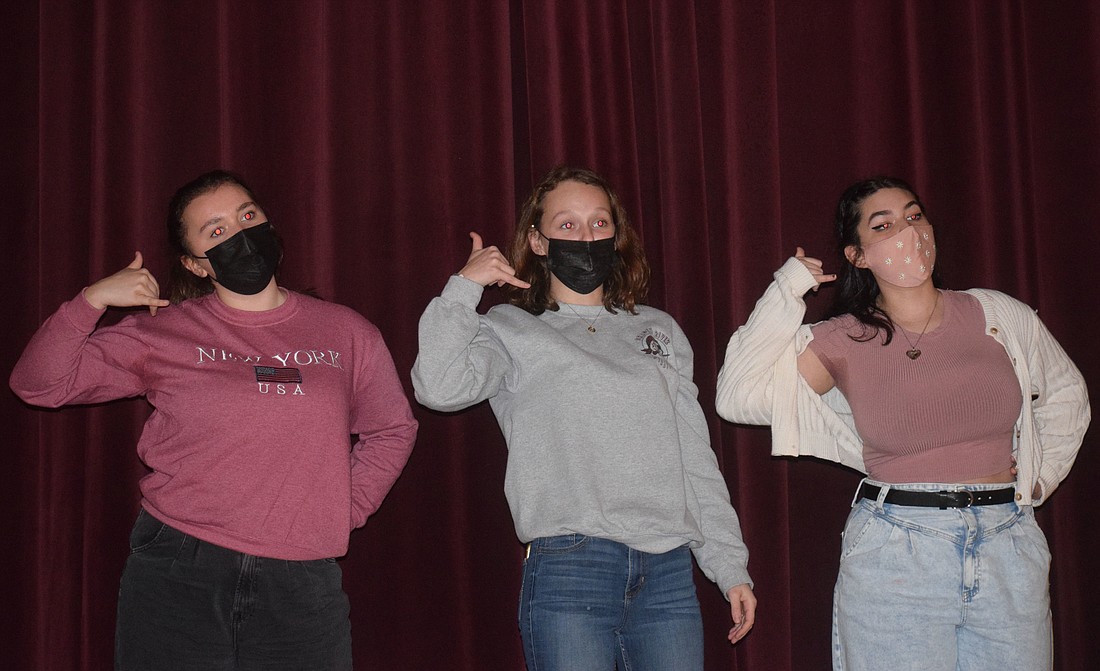- April 23, 2025
-
-
Loading

Loading

Braden River High School’s cast of “Little Shop of Horrors” was in the middle of rehearsal last March when Director Ricardo Robinson-Shinall was told they wouldn’t be returning to school due to COVID-19.
Luckily, he was given a year extension for the rights of “Little Shop of Horrors,” and his students will be able to perform the show live and virtually in April.
The problem for the school’s theater department, along with several other high school theater departments including Lakewood Ranch High School, is funding.
Robinson-Shinall and Roxane Caravan, the director at Lakewood Ranch High School, both said the schools’ theater programs don’t receive funding from the schools or the district and must depend on revenue from their performances and fundraising efforts.
“It’s important that people understand that just because it exists in a high school setting doesn’t mean it’s truly funded at the level in which it needs to be funded,” Robinson-Shinall said.
A virtual showcase at Braden River High School in February and a lip sync battle (only attended by participating students) at Lakewood Ranch High School also in February were the first performances the schools have been able to do since schools closed in March 2020.
The students in the programs also haven’t been able to raise funds due to COVID-19 limitations.
“We’ve always had to go out and raise our own money and do our own thing,” Robinson-Shinall said. “But it was much easier for us to do that because our easiest way of making money was to showcase what we’re doing and put the kids on stage and let them do their thing. Because that was taken away from us, it has cut significantly into our income.”
Along with raising funds with “Little Shop of Horrors,” Robinson-Shinall and his students are going to businesses to see if they would be willing to make financial donations or provide materials to build sets.
Robinson-Shinall said the school spends about $7,000 to perform the spring musical, which he said is on the lower side of production costs. Braden River uses the revenue from the musical to pay for the next year’s musical.
The Lakewood Ranch theater program depends on its annual summer theater camp to provide funds for productions throughout the year, including the spring musical that can cost between $20,000 and $25,000.
Caravan said providing costumes, building sets and hiring a choreographer, a music director, a technical director and others to help with the production adds up.
Caravan had to cancel last year’s and this year’s camps due to the pandemic.
Due to the loss of revenue from not being able to have the summer camp or put on any public performances until the school’s virtual cabaret show March 5, Caravan expects next year’s theater program to be like a startup program.
“Not having income that supports directly into our program, it’s going to annihilate our program,” Caravan said. “I’m pretty much planning that there’s going to be a lot of starting over next year. Hopefully, there’s some angels out there who are going to want to see these arts programs flourish again in the schools.”
Caravan and Robinson-Shinall have had to come up with creative ways to keep their students engaged throughout the year because they couldn’t perform in class.
Besides the lip sync battle, Lakewood Ranch students did workshops with theater professionals.
Besides its virtual showcase, Braden River students held virtual breakout sessions for students on campus to interact with e-learners and has started rehearsals for “Little Shop of Horrors.”
“‘Little Shop of Horrors’ is two years of planning, so it’s kind of nice to see it actually coming together, and it’s going to be out there for the world to see,” Robinson-Shinall said. “I am most excited about just showcasing the talent of the students and allowing them to have a voice and be seen and be on stage.”